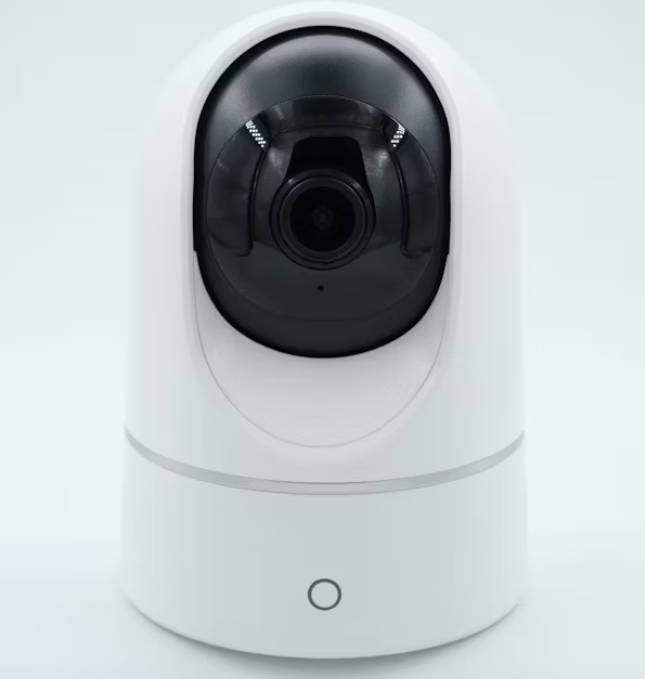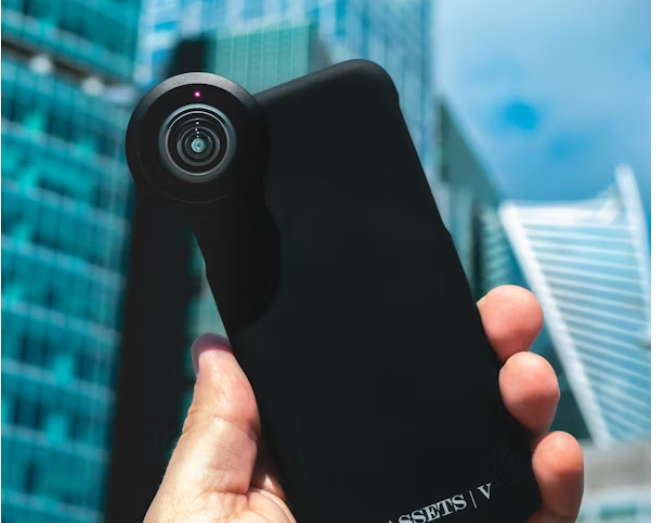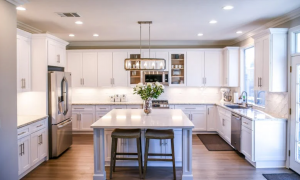Home Security Showdown: Comparing Smart Cameras and Alarms
5 min read
In an age where the sanctity of our homes is increasingly threatened by intruders and burglars, the importance of robust home security measures cannot be overstated. But with a plethora of options available on the market, ranging from traditional alarm systems to cutting-edge smart cameras, homeowners are often left bewildered and uncertain about the best course of action to protect their properties. How do these different security solutions stack up against each other? Are smart cameras truly the future of home security, or do traditional alarm systems still hold their ground? Join us as we delve into the world of home security, comparing the effectiveness, features, and benefits of smart cameras and alarms to help you make an informed decision about safeguarding your home and loved ones.
In the realm of home security, smart cameras have emerged as a game-changer, offering unprecedented levels of surveillance and peace of mind to homeowners. Equipped with advanced features such as high-definition video recording, motion detection, and two-way audio communication, these smart devices provide real-time monitoring and alerts, allowing users to keep tabs on their homes from anywhere in the world. But do these bells and whistles translate into tangible benefits when it comes to deterring intruders and preventing break-ins? On the other hand, traditional alarm systems have long been the stalwarts of home security, relying on sensors, sirens, and monitoring services to detect and respond to unauthorized entry. While these systems may lack the sophistication and connectivity of smart cameras, their proven track record and reliability cannot be ignored. So which is the better option for safeguarding your home: smart cameras or alarms? Let’s explore further to find out.
The Power of Surveillance: Smart Cameras vs. Traditional Alarms
When it comes to surveillance, smart cameras undoubtedly have the upper hand, offering high-definition video recording, live streaming, and motion detection capabilities that allow homeowners to keep a watchful eye on their properties at all times. With features like night vision and two-way audio communication, smart cameras provide a comprehensive solution for monitoring and deterring intruders, giving homeowners peace of mind knowing that their homes are under constant surveillance. However, the effectiveness of smart cameras relies heavily on the quality of the camera itself and the reliability of the internet connection. In contrast, traditional alarm systems rely on sensors placed at strategic points around the home to detect unauthorized entry. When triggered, these sensors activate a loud siren and alert the monitoring service, who can then dispatch emergency services if necessary. While traditional alarms may lack the sophistication of smart cameras, their simplicity and reliability make them a popular choice for homeowners seeking effective home security solutions.
Ease of Installation and Integration: Smart Cameras vs. Traditional Alarms
In terms of installation and integration, smart cameras offer a plug-and-play solution that can be easily set up and connected to a smartphone app for remote monitoring and control. With wireless connectivity options, such as Wi-Fi or cellular, smart cameras can be installed virtually anywhere in the home without the need for extensive wiring or professional installation. Additionally, many smart cameras are compatible with other smart home devices, allowing for seamless integration and automation of security features. On the other hand, traditional alarm systems typically require professional installation and may involve drilling holes and running wires throughout the home. While this may be a deterrent for some homeowners, the reliability and effectiveness of traditional alarms make them a worthy investment for those seeking peace of mind.

Cost Considerations: Smart Cameras vs. Traditional Alarms
When it comes to cost, smart cameras and traditional alarm systems vary significantly in terms of upfront expenses and ongoing costs. Smart cameras typically require a higher initial investment due to the cost of the camera itself, as well as any additional subscription fees for cloud storage or advanced features. However, many homeowners find the peace of mind offered by smart cameras to be well worth the investment. In contrast, traditional alarm systems often have lower upfront costs, as they may be subsidized by monitoring contracts or bundled with other home security services. However, homeowners should be mindful of the ongoing costs associated with monitoring fees and maintenance contracts, which can add up over time. Ultimately, the decision between smart cameras and traditional alarms will depend on the individual homeowner’s budget and security needs.
User Experience and Accessibility: Smart Cameras vs. Traditional Alarms
In terms of user experience and accessibility, smart cameras offer a more intuitive and user-friendly interface, allowing homeowners to easily monitor and control their security systems from anywhere with an internet connection. With mobile apps and cloud-based storage, smart cameras provide flexibility and convenience that traditional alarm systems may lack. However, traditional alarms offer a level of reliability and simplicity that appeals to many homeowners, particularly those who may not be tech-savvy or who prefer a hands-off approach to home security. Ultimately, the best security system is one that meets the needs and preferences of the individual homeowner, whether that be a high-tech smart camera setup or a tried-and-true traditional alarm system.
Conclusion
In conclusion, the choice between smart cameras and traditional alarms ultimately boils down to a combination of personal preference, budget considerations, and security needs. While smart cameras offer advanced features and remote monitoring capabilities, traditional alarm systems provide reliability and simplicity that may appeal to some homeowners. By weighing the benefits and drawbacks of each option, homeowners can make an informed decision about the best way to protect their homes and loved ones from intruders and burglars.

FAQs
- Do smart cameras require a monthly subscription fee?Many smart camera systems offer optional subscription plans for cloud storage and advanced features, but basic functionality may be available without a subscription.
- Can traditional alarm systems be integrated with smart home devices?Some traditional alarm systems may offer integration with smart home devices, but compatibility may vary depending on the manufacturer and model.
- Do smart cameras require a strong internet connection to function?Yes, smart cameras rely on a stable internet connection for remote monitoring and control, so a strong Wi-Fi signal is essential for optimal performance.
- Are smart cameras more susceptible to hacking than traditional alarm systems?Smart cameras may be vulnerable to hacking if not properly secured, but reputable manufacturers implement encryption and security protocols to protect against unauthorized access.
- Do traditional alarm systems require professional monitoring?While professional monitoring is often recommended for traditional alarm systems, some homeowners may opt for self-monitoring options to save on monthly fees.





